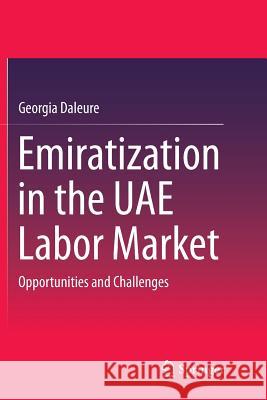Emiratization in the Uae Labor Market: Opportunities and Challenges » książka
topmenu
Emiratization in the Uae Labor Market: Opportunities and Challenges
ISBN-13: 9789811097003 / Angielski / Miękka / 2018 / 122 str.
Kategorie BISAC:
Wydawca:
Springer
Język:
Angielski
ISBN-13:
9789811097003
Rok wydania:
2018
Wydanie:
Softcover Repri
Ilość stron:
122
Waga:
0.20 kg
Wymiary:
23.39 x 15.6 x 0.76
Oprawa:
Miękka
Wolumenów:
01
Dodatkowe informacje:
Wydanie ilustrowane











